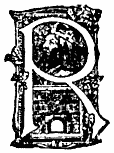Transcriber’s Note
This e-text uses a number of special characters, including:
- vowels with macrons: ā ē ō
- vowels with breves: ă ĕ ŏ
- accented Greek: ἀ ἔ ἦ ϊ ῦ ῳ
- phonetic symbols: ɛ ɨɵ ŋ
If these do not display correctly, make sure that your browser’sfile encoding is set to UTF-8. You may also need to change your defaultfont. For Greek words, the transliteration will appear if you move themouse over the word: ἀκμή
A short passage on page 222 uses some symbols that are not in Unicode;see the explanation at the end of the text forimages of the original symbols and the transcription scheme.
In the original book, the odd-numbered pages have unique headers,represented here as sidenotes.
Obvious printing errors involving punctuation (such as missing singlequotes), as well as alphabetization errors in the index, have beencorrected without notes. Other corrections ofprinting errors are noted using mouse-hover popupslike this.Variation in the spelling of the names Jonson/Johnson, Spenser/Spencer,and Ralegh/Raleigh is as in the original.
ENGLISH
PAST AND PRESENT
BY
RICHARD CHENEVIX TRENCH, D.D.
Edited with Emendations
BY
A. SMYTHE PALMER, D.D.
Author of ‘The Folk and their Word-lore,’ ‘Folk-Etymology,’‘Babylonian Influence on the Bible,’ etc.

London
GEORGE ROUTLEDGE & SONS, Limited
NEW YORK: E. P. DUTTON & CO.
1905[v]
EDITOR’S PREFACE
In editing the present volume I have thought itwell to follow the same rule which I laid down formyself in editing The Study of Words, and havemade no alteration in the text of Dr. Trench’swork (the fifth edition). Any corrections or additionsthat seemed to be demanded owing to theprogress of lexicographical knowledge have beenreserved for the foot-notes, and these can alwaysbe distinguished from those in the original by thesquare brackets [thus] within which they are placed.
On the whole more corrections have been requiredin English Past and Present than in TheStudy of Words owing to the sweeping statementswhich involve universal negatives—statements,e.g. that certain words either first came into use,or ceased to be employed, at a specific date.Nothing short of the combined researches of anarmy of co-operative workers, such as the NewEnglish Dictionary commanded, could warrant thecorrectness of assertions of this kind, which implyan exhaustive acquaintance with a subject so immenseas the entire range of English literature.
Even the mistakes of a learned man are instructiveto those who essay to follow in his steps, andit is not without use to point them out instead ofignoring or expunging them. Thus, when theArchbishop falls into the error (venial when hewrote) of assuming an etymological connexionbetween certain words which have a specious airof kinship—such as ‘care’ and ‘cura,’ ‘bloom’and ‘blossom,’ ‘ghastly’ and ‘ghostly,’[vi]‘br